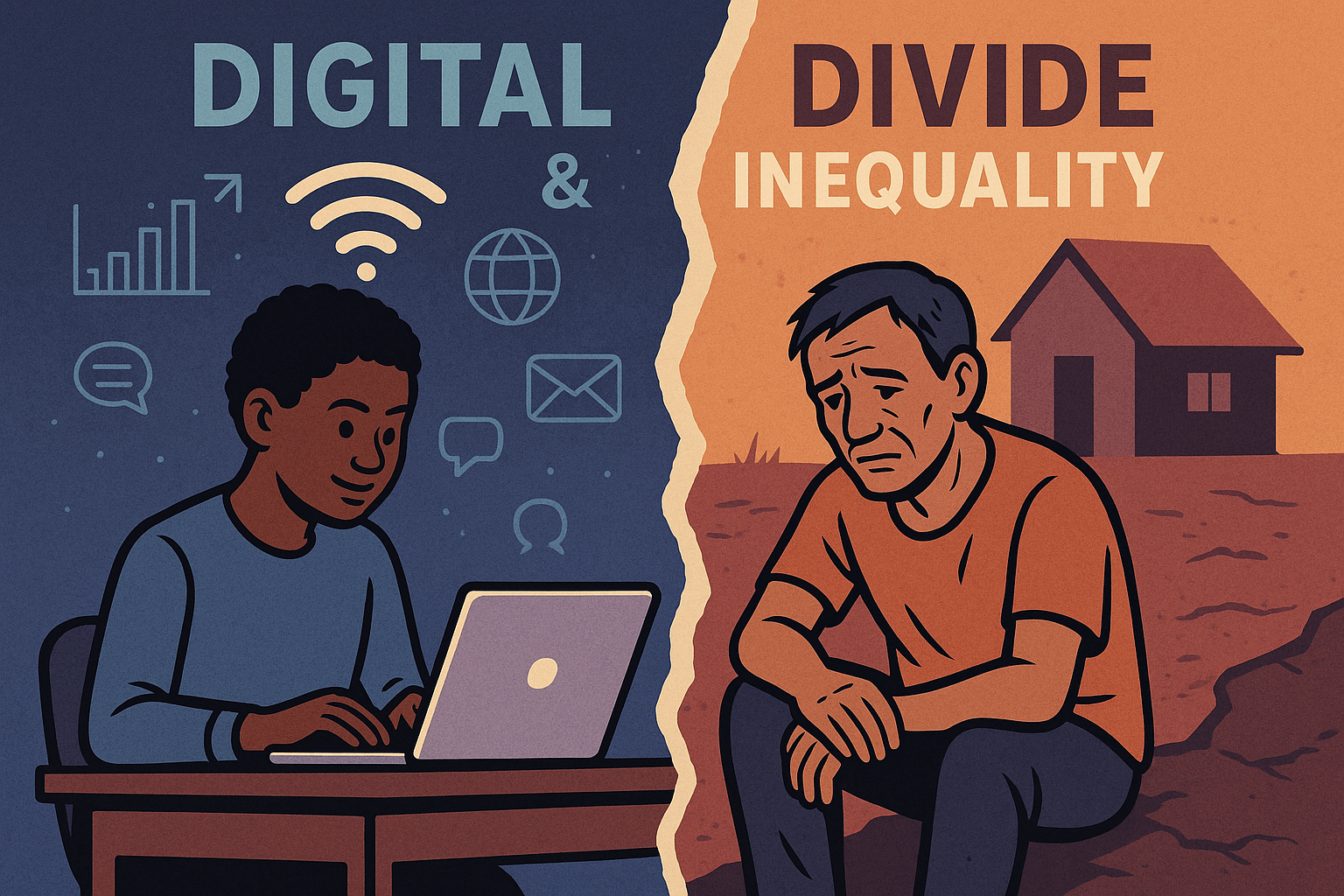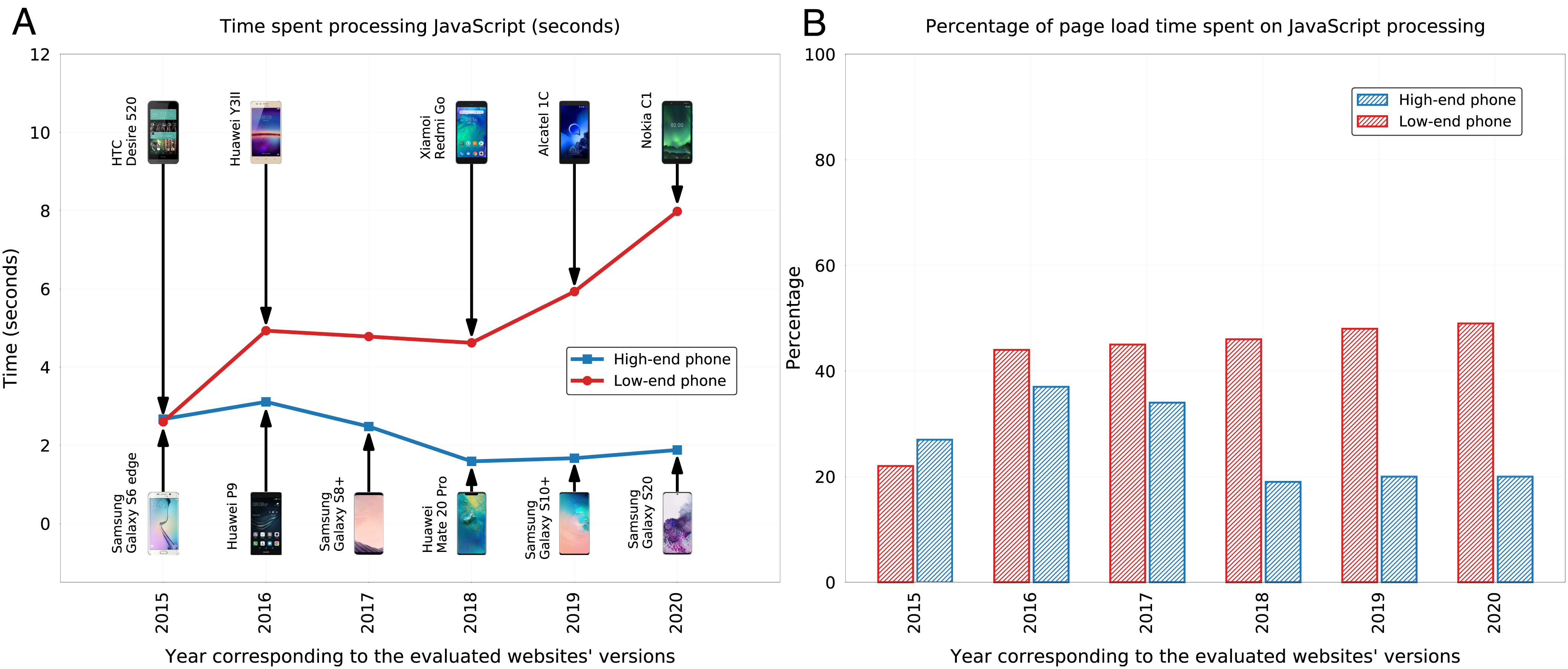Towards a World Wide Web without digital inequality

Overview
The World Wide Web (WWW) empowers people in developing regions by eradicating illiteracy, supporting women, and generating economic opportunities. However, their reliance on limited bandwidth and low-end phones leaves them with a poorer browsing experience compared to privileged users across the digital divide. To evaluate the extent of this phenomenon, we sent participants to 56 cities to measure the cost of mobile data and the average page load time. We found the cost to be orders of magnitude greater, and the average page load time to be four times slower, in some locations compared to others. Analyzing how popular webpages have changed over the past years suggests that they are increasingly designed with high processing power in mind, effectively leaving the less fortunate users behind. Addressing this digital inequality through new infrastructure takes years to complete and billions of dollars to finance. A more practical solution is to make the webpages more accessible by reducing their size and optimizing their load time. To this end, we developed a solution called Lite-Web and evaluated it in the Gilgit-Baltistan province of Pakistan, demonstrating that it transforms the browsing experience of a Pakistani villager using a low-end phone to almost that of a Dubai resident using a flagship phone. A user study in two high schools in Pakistan confirms that the performance gains come at no expense to the pages’ look and functionality. These findings suggest that deploying Lite-Web at scale would constitute a major step toward a WWW without digital inequality.
Key Capabilities
- New frameworks such as LiteWeb and MAML that dynamically streamlines webpages for low-end devices
- Reduces page size by eliminating non-essential scripts, media, and styling
- Preserves visual layout and interactive functionality across simplified pages
- Supports deployment across regions with limited bandwidth and aging hardware
- Real-world implementation tested in Gilgit-Baltistan with end-users and schools

Results
- Measured 4× faster page loads and significantly lower data usage in constrained settings
- Browsing experience on a low-end phone in Pakistan nearly matched that of a flagship phone in Dubai
- User studies in two Pakistani high schools showed no perceived loss in page quality or usability
- Demonstrated potential for cost-effective, scalable reduction in global digital inequality
- Highlights webpage optimization as a viable alternative to expensive infrastructure upgrades

Paper
Read the full paper: Towards a World Wide Web without digital inequality
Collaborators
- Moumena Chaqfeh (NYUAD)
- Matteo Varvello (Bell Labs)
- Fareed Zaffar (LUMS)
- Talal Rahwan (NYUAD)
- Ayush Pandey (NYUAD)
- Bedoor AlShebli (NYUAD)
- Lakshmi Subramanian (Advisor, NYU)
- Yasir Zaki (Advisor, NYU Abu Dhabi)